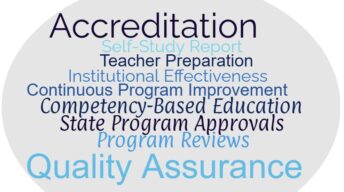We all hear and read about the benefits of earning a college degree: We make more money over a lifetime; we get better jobs; we receive company-paid benefits; we tend to be happier and healthier overall. However, choosing the right college or university can be quite daunting, and yet it’s terribly important, because not all institutions are alike, and the quality can vary widely. While there are lots of things to consider such as cost, degree programs, scheduling, and the like, one thing many college students often overlook is whether or not the university is accredited.
There are many types of accreditation–you may likely hear terms such as regional accreditation, national accreditation, functional or programmatic accreditation, and sometimes even state accreditation. Each plays an important role in quality assurance for specific programs or an entire institution but here’s a strong recommendation:
Don’t ever take a single course from an institution that is not accredited. Never. Ever.
While no guarantee of perfection, accredited institutions have provided certain levels of assurance to respected bodies within academia that students will be taken care of. Non-accredited institutions have had no one looking over their shoulder, digging deep and looking in various academic or financial nooks and crannies; they can accept your money with absolutely no guarantee that the course or degree that you completed will be worth anything at all.
Plus, if you complete courses from an unaccredited institution, there is no guarantee that those courses will be accepted should you decide to transfer to another university later on. Even worse, if you go the distance and complete an entire degree from an institution that’s not accredited, you may find that many employers or graduate schools will not recognize that degree–in their eyes it will be like you don’t have a degree at all–but you’ll still have those student loans to pay back just the same.
Here is an entertaining yet informative video that clears up some of the confusion:
You should be able to choose a college or university that fits your particular needs:
- faith-based
- public
- private
- traditional brick & mortar
- online
- non-profit
- for-profit
Regardless of which you choose, make sure it’s a program that is accredited.
–rrf
Dr. Roberta Ross-Fisher is a national leader in educator preparation, accreditation, online learning, and academic quality assurance. An accomplished presenter, writer, and educator, she currently supports higher education and P-12 schools in areas such as competency-based education, teacher preparation, distance learning, and accreditation through her company, Global Educational Consulting, LLC. She can be reached at: globaleducationalconsulting@gmail.com

